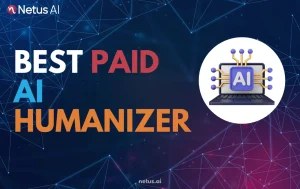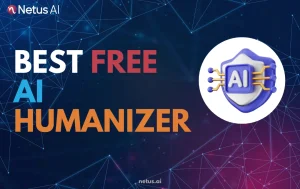
Why Students Are Getting Flagged Even When Writing Honestly | NetusAI
Learn how students can use AI tools for writing and research without getting flagged by AI detectors. Get tips on humanizing content and staying academically safe.
Guidelines for Conducting Remote Assessments: Expert Tips for Efficient and Accurate Evaluations

Content writer and editor for Netus.AI
Guidelines for Conducting Remote Assessments. In today’s fast-paced world, education is no longer limited to traditional face-to-face interactions. Remote assessments have become an integral part of online courses, providing both students and teachers with the flexibility to engage in learning from virtually anywhere. Assessments conducted remotely help educators assess the progress and understanding of students enrolled in virtual programs while providing learners with the ability to acquire knowledge at their own pace.
As the popularity of online courses continues to grow, educators and students alike are discovering the benefits of remote learning. The convenience and flexibility offered by these virtual courses are playing a vital role in the increasing enrollment of students in the online education domain.
To adapt to virtual learning environments, teachers utilize remote assessments to evaluate student progress instead of traditional classroom tests. These assessments are completed and submitted by students through virtual platforms, such as learning management systems (LMS).
Online educators often set deadlines for academic paper submissions or design timed tests that can only be taken after logging into the system. Remote assessments could include virtual interviews and compliance checks, ensuring that students adhere to academic integrity standards.
Key considerations for remote assessments:
Overall, the implementation of remote assessments offers an effective way for teachers to gauge student progress in a virtual learning environment, while addressing the challenges of maintaining academic integrity.
When conducting remote regulatory assessments (RRAs), it is crucial to establish a clear process to ensure fairness and minimize the likelihood of misconduct. Here are some steps to achieve successful remote assessments:
By following these steps, you can maintain a high standard of integrity during remote assessments and ensure the overall success of online learning experiences.
In the context of online learning, gauging students’ understanding can be challenging. A well-structured feedback system can help address this issue, particularly during the COVID-19 pandemic when physical interactions are limited.
To facilitate clear communication, educators should encourage students to submit their concerns and questions after each session. Creating a document for feedback collection can help students reflect on their learning experiences and articulate their doubts or difficulties. This approach allows teachers to better understand and address students’ concerns while providing the necessary corrective actions.
Moreover, it is vital to carry out periodic feedback related to the overall quality of online classes. By doing so, students have the opportunity to express any shortcomings they’ve observed, allowing educators to improve and enhance the virtual learning experience. Utilizing various formatting options such as tables, bullet points, and bold text can also aid in effectively presenting and processing the collected information.
Incorporating diverse test materials is essential to ensure a fair evaluation and lessen the possibility of cheating among students. Teachers should create multiple sets of questions covering the same topics, allowing students to demonstrate their comprehension independently. Consider the following strategies:
By executing these measures, educators can uphold examination integrity and accurately assess students’ understanding.
It is crucial to be aware of the latest cheating techniques in online education. Cheating methods include utilizing essay mills and paraphrasing tools to generate content for assignments. Online educators need to ensure students do not engage in such practices during remote assessments to protect confidential information. Utilize the following strategies:
To support students in adapting to online learning, implementing a variety of assessment formats is crucial. By incorporating techniques like short and long answer questions, as well as choice-based answers, educators can effectively gauge student progress and deter cheating. The utilization of diverse assessment methods also accommodates different technological capabilities, ensuring a more equitable and efficient evaluation process.
The surge in online education has led to an increase in the occurrence of plagiarism in student assignments. This issue is often due to inadequate research skills, which can be addressed by employing sophisticated plagiarism detection systems accessible to both educators and students.
For remote assessments, it is essential that educators inform students about the importance of submitting original work and the use of plagiarism checkers to evaluate their assignments. Proper understanding of citing sources is crucial, as plagiarism can happen inadvertently, resulting from a lack of awareness.
Students must understand how to avoid plagiarism by adequately citing references within their work. Inadvertent plagiarism may negatively affect their academic standing, as it indicates insufficient attention to detail.
Usage of an online plagiarism detection tool helps students ensure the originality of their academic papers. This practice is especially vital in maintaining academic integrity during public health emergencies when remote learning is prevalent.
In addition to educational settings, plagiarism checkers can be beneficial in regulatory assessments, such as form FDA 483 evaluations.
In summary, the application of plagiarism detection tools in remote assessments is crucial for preserving the integrity and quality of submitted assignments, regardless of the learning environment.
Online learning continues to grow in popularity, and maintaining academic integrity within this domain is crucial. By employing robust examination proctoring methods and utilizing anti-plagiarism software for remote assignments, educators can ensure a fair and high-quality learning experience. It is essential for online instructors to leverage cutting-edge technology in order to prevent students from engaging in dishonest practices during remote assessments.

Learn how students can use AI tools for writing and research without getting flagged by AI detectors. Get tips on humanizing content and staying academically safe.

Explore the best paid AI humanizer tools that deliver high-quality, undetectable content. Compare pricing, features, and accuracy to choose the right solution for your needs.

Looking for the best tools to make AI content undetectable? Explore top AI humanizers, bypass tools, and rewriting solutions to pass detectors and sound fully human.

Explore why AI content humanization is essential for SEO success. Learn how human-like rewrites can improve rankings, engagement, and trust with search engines.

Discover the best free AI humanizer tools to make your content sound natural and bypass AI detection. Compare features, pros, and limitations of top free options.

Learn how to prompt AI tools to write like a human. Discover techniques to improve tone, structure, and emotion in AI-generated content for better authenticity and SEO.
@ 2024 Netus AI.